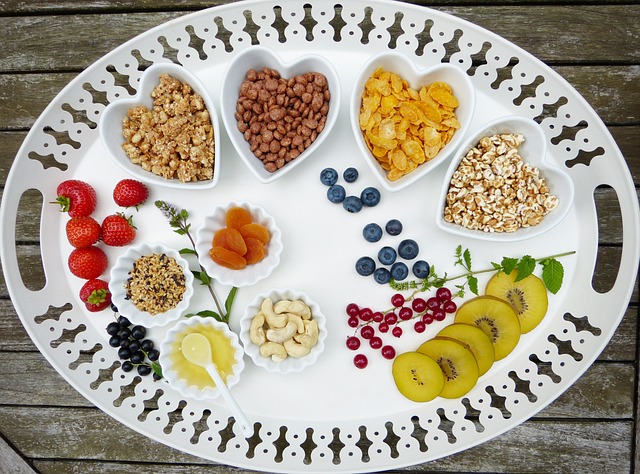Probiotics 101: Everything You Need to Know about these Miracle Microbes
When it comes to maintaining a healthy body, probiotics are often hailed as the miracle microbes. These living microorganisms, known as “good bacteria,” provide countless health benefits when consumed in adequate amounts. From improving digestion to boosting the immune system, probiotics have gained a lot of attention in recent years. In this article, we will delve into the world of probiotics and everything you need to know about these beneficial microbes.
What Are Probiotics?
Probiotics are live bacteria and yeasts that are good for your health, particularly for your digestive system. These beneficial microorganisms are naturally present in your body, especially in your gut, and can also be found in certain foods and supplements. The word “probiotic” is derived from the Greek word “pro,” meaning “promoting,” and “biotic,” meaning “life.”
The Different Types of Probiotics
There are different types of probiotics, but the most common ones are:
- Lactobacillus: This type of probiotic is found in yogurt and other fermented foods. It produces lactase, an enzyme that helps break down lactose, making it beneficial for those who are lactose intolerant.
- Bifidobacterium: Found in some dairy products, this type of probiotic may help ease the symptoms of irritable bowel syndrome (IBS) and promote regular bowel movements.
- Saccharomyces boulardii: This particular yeast probiotic can be useful in preventing and treating certain types of diarrhea, especially those associated with antibiotic use.
Health Benefits of Probiotics
The consumption of probiotics has been linked to several health benefits:
- Improved Digestive Health: Probiotics help maintain a healthy balance of bacteria in your gut, which promotes good digestion and reduces the risk of digestive disorders like diarrhea, constipation, and irritable bowel syndrome.
- Enhanced Immune System: Probiotics stimulate the production of natural antibodies in your body, boosting your immune system’s ability to fight off harmful bacteria and viruses.
- Prevention of Urinary Tract Infections: Certain strains of probiotics, particularly Lactobacillus, can help prevent and reduce the recurrence of urinary tract infections, mainly in women.
- Reduced Risk of Allergies: Early exposure to probiotics, either during pregnancy or infancy, may help reduce the risk of developing allergies, particularly eczema and hay fever.
- Improved Mental Health: Studies have suggested a possible link between gut health and mental health. Probiotics may help improve symptoms of anxiety, depression, and other mental disorders by regulating the gut-brain axis.
Sources of Probiotics
Probiotics can be obtained through both natural food sources and supplements:
- Yogurt: Yogurt, particularly those labeled as containing live and active cultures, is a popular source of probiotics. Look for yogurt brands that specifically mention the strains of bacteria they contain.
- Kefir: Kefir is a fermented milk drink that contains various strains of bacteria and yeast. It is known for its high probiotic content and is an excellent option for those who are lactose intolerant.
- Sauerkraut: Sauerkraut is fermented cabbage that contains natural probiotics. However, it’s important to choose unpasteurized sauerkraut, as the pasteurization process can kill the beneficial bacteria.
- Kimchi: Kimchi is a traditional Korean side dish made from fermented vegetables such as cabbage and radishes. It is rich in probiotics and adds a tangy flavor to your meals.
- Supplements: Probiotic supplements are also widely available and can be a convenient way to ensure an adequate intake of probiotics. Speak to your healthcare provider before starting any supplements.
Probiotics and Prebiotics
While probiotics are well-known for their health benefits, they can work even better when combined with prebiotics. Prebiotics are non-digestible fibers found in certain foods that serve as food for the beneficial bacteria in your gut. They help promote the







